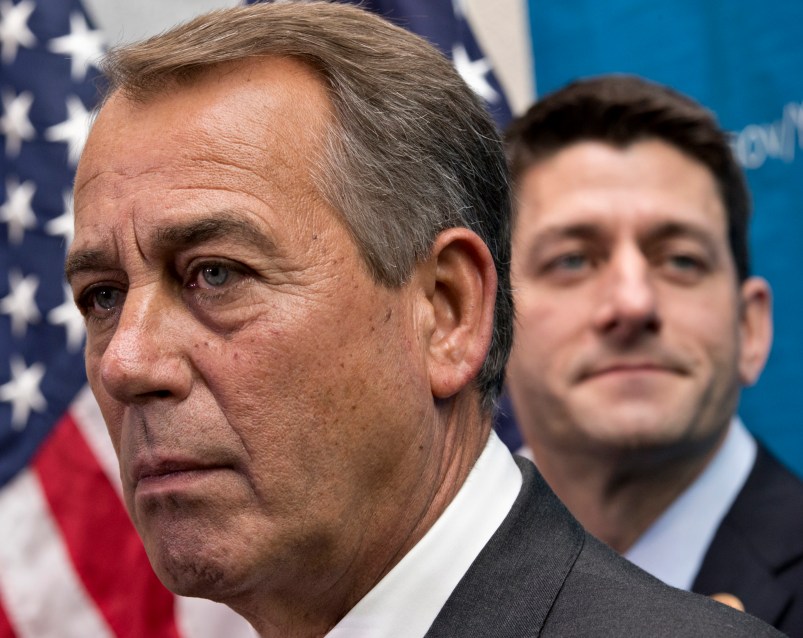Congressional Republicans’ complicated — and sometimes contradictory — positions on safety-net programs like Medicare and Social Security have put the party in a tough predicament as Capitol Hill gears up for budget season.
The House GOP passed its sweeping vision by Rep. Paul Ryan (R-WI) to remake the federal budget in March or April of 2011, 2012 and 2013. But this year, a swath of election-year attacks adopted by Republicans have narrowed their policy space to write a viable budget.
Republicans have launched a party-wide attack blitz against Democrats over payment cuts to private insurers under Medicare Advantage, which covers one-third of Medicare beneficiaries. The savings were enacted under Obamacare, then included in the Ryan budgets for each of the last three years. Nearly all Republicans voted for them.
Instead of using the money to finance Obamacare, Republicans used the roughly $150 billion in savings to help cover the cost of their tax cuts and meet their deficit reduction targets. (The Medicare cuts to providers and insurers under Obamacare total about $700 billion.) Without them, it’d be harder to make the Ryan plan’s numbers add up. It’s already awkward for Republicans to attack cuts they’ve supported without a fuss in the past, but it’d be more embarrassing to vote for cuts they’re simultaneously using as a key campaign issue in the 2014 elections.
Then there’s Social Security. Republican leaders have been attacking President Barack Obama for rescinding a provision in his budget to cut future benefits. “This reaffirms what has become all too apparent: the president has no interest in doing anything, even modest, to address our looming debt crisis,” said Brendan Buck, a spokesman for Speaker John Boehner (R-OH).
Notably, the provision — known as Chained CPI, which slows the rate of inflation for benefits — was not included in any of the GOP’s own budgets, which left Social Security untouched. But if it’s a mere modest step toward avoiding a debt crisis, as they now say, Republicans would have a tough time justifying excluding it from their budget.
That said, if they do take up the policy, Republicans would make themselves vulnerable to attacks for seeking to cut the highly popular retirement program. Democrats would pounce, and the attacks could be especially damaging among elderly voters, who vote in large numbers and tend to prefer Republicans. They would also be undercutting their own election arm’s attacks on Democratic candidate Alex Sink of Florida for speaking favorably about a comprehensive deficit-reduction plan that cuts Social Security.
It’s a lose-lose predicament that reflects the GOP’s competing interests on Medicare and Social Security. Their wealthy donors are eager to scale back these programs, but millions of their constituents benefit from them and voters broadly oppose any cuts. At the same time, Republicans often can’t resist using the specter of cuts as a political weapon.
When Boehner was asked Thursday if the House GOP conference will offer a budget this year, he said, “I certainly expect so.” Although Ryan hasn’t made any announcements, his spokesman William Allison told TPM, “It is Chairman Ryan’s intent to again put forward a balanced budget.” But he said it’s too early to say what will be in the proposal.
Republicans could conceivably decide not to pass a budget this year, perhaps by pointing to the bipartisan deal approved last December, which set spending levels for 2014 and 2015. But budget season has for years been an opportunity for them to loudly and proudly declare their fiscal vision, as they’ve done in their three-year-long push to convert Medicare into a voucher-like program. If Republicans forgo it this year, it’ll likely be because they boxed themselves into an untenable position.










